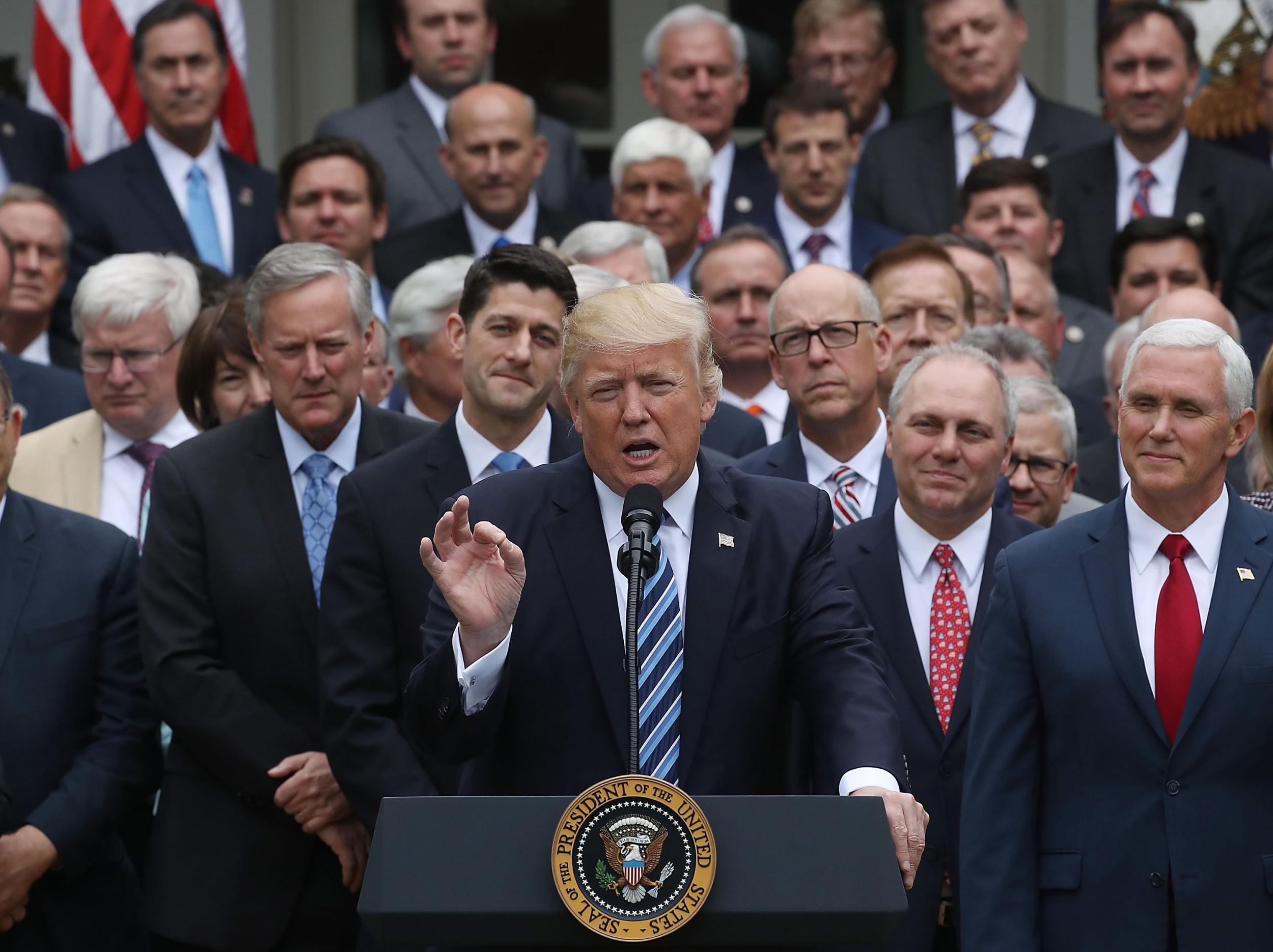Trump's newest healthcare bill will cause 23 million to lose insurance, says CBO
The number is a slight reduction from the 24 million Americans who were forecast to lose insurance under a previous version of the bill

Your support helps us to tell the story
From reproductive rights to climate change to Big Tech, The Independent is on the ground when the story is developing. Whether it's investigating the financials of Elon Musk's pro-Trump PAC or producing our latest documentary, 'The A Word', which shines a light on the American women fighting for reproductive rights, we know how important it is to parse out the facts from the messaging.
At such a critical moment in US history, we need reporters on the ground. Your donation allows us to keep sending journalists to speak to both sides of the story.
The Independent is trusted by Americans across the entire political spectrum. And unlike many other quality news outlets, we choose not to lock Americans out of our reporting and analysis with paywalls. We believe quality journalism should be available to everyone, paid for by those who can afford it.
Your support makes all the difference.Donald Trump's revised American Health Care Act (AHCA) - the Republican's replacement for Obamacare - would leave 23 million Americans without health insurance by 2026, the Congressional Budget Office (CBO) has found.
The number is a slight reduction from the 24 million Americans who were forecast to lose insurance under a previous version of the bill. This version of the bill will also reduce the federal deficit by $32 billion less than the previous draft.
The AHCA has been the centre of fierce political debate since the CBO released their first estimate in March. The claim that millions of Americans could lose coverage was one reason the bill was pulled from a House vote that month, and forced into rushed revisions.
House Republicans earlier this month made the unusual decision to pass the revised AHCA before the CBO released their updated score. That meant they did not know how many Americans would lose health insurance under the bill, or whether it would achieve the $2bn in savings mandated by a previous budget resolution.
The new bill meets the savings mandates, meaning it won't have to be sent back to the House for revisions, but the projection of 23 million people uninsured is sure to haunt Republicans.
The CBO estimates that the AHCA would leave a total of 51 million people under age 65 without health insurance over the next 10 years, compared to 28 million under current law.
“I don’t know how we get to 50 at the moment,” Senate Majority Leader Mitch McConnell said of the upcoming Senate vote.
Former CBO Director Douglas Holtz-Eakin, however, called the latest report "essentially no news".
"The numbers differ in terms of premiums, but given the nature of these estimates ... this is exactly the picture they had before," Mr Holtz-Eakin told The Independent.
Under the new version of the bill, health care premiums would increase by an average of about 20 per cent in 2018 and 5 percent in 2019. But premiums would begin to drop around 2020, the CBO reports.
That's because of a last-minute addition called the McArthur Amendment, which allows states to opt out of certain Obamacare protections.
Opting out would allow states to offer cheaper insurance premiums – but at a cost. Cheaper plans would likely exclude protections for people with pre-existing conditions, and "essential health benefits" such as prescription drug coverage, pregnancy services, and mental health care.
Experts say this shift in the quality of health coverage – not just the quantity insured – cannot be ignored.
"Yes, premium costs go down for some people," Arthur Tacchino, a healthcare reform expert for SyncStream Solutions, told The Independent. "But overall out-of-pocket costs – deductibles, co-payments, and co-insurance – could potentially increase tremendously."
The CBO is a non-partisan office that produces independent analyses of budgetary and economic issues for Congress. While some of its recent reports have been controversial, the office's estimates are largely trusted by politicians on either side of the aisle.
Some Republicans attempted to discredit the CBO on Wednesday, while others simply downplayed the importance of the score.
"We're focused on how to solve the underlying problem and not spending a great deal of time dwelling on one scoring estimate for a proposal that's not going to be the underlying bill," Senator Ted Cruz told reporters.
The bill is expected to undergo major changes before the Senate votes.
Join our commenting forum
Join thought-provoking conversations, follow other Independent readers and see their replies
Comments